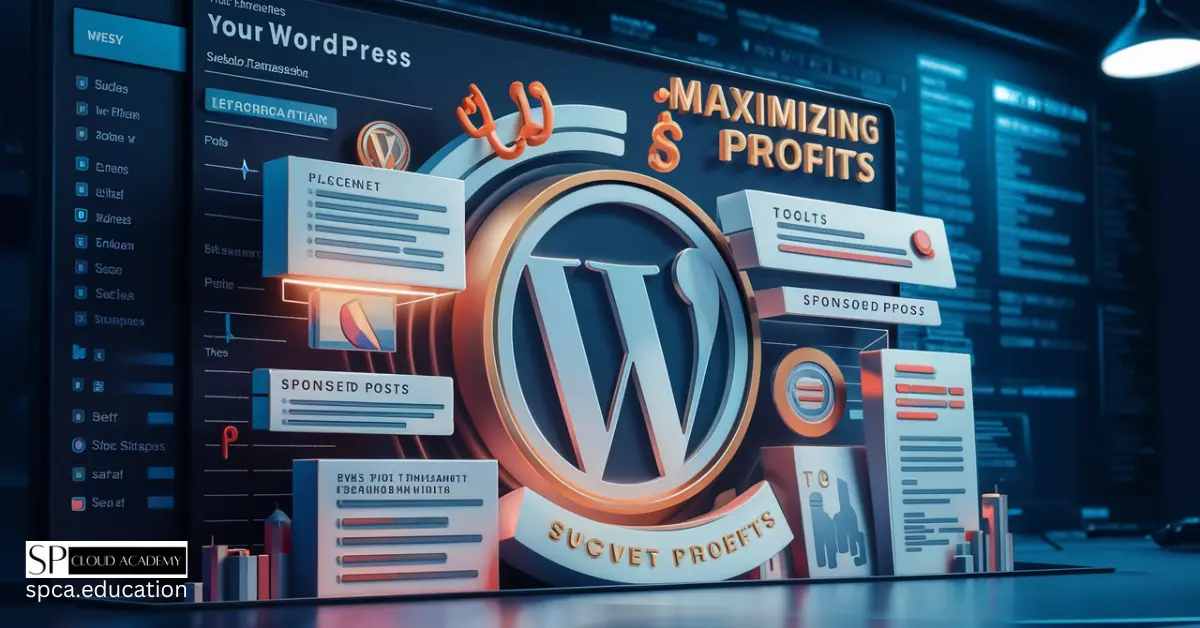In the vast landscape of online content creation, choosing the right platform can make or break your success. Two giants stand out among the options: Blogger and WordPress. Whether you’re launching a personal blog, building a professional website, or aiming to monetize your content, the decision between Blogger vs WordPress hinges on your unique content goals. This comprehensive guide dives deep into the features, strengths, and limitations of both platforms to help you determine which one aligns best with your needs. With this highly readable content, you’ll find everything you need to make an informed choice.
Let’s explore what Blogger and WordPress bring to the table, compare their key aspects like ease of use, customization, monetization, SEO, support, and cost, and match them to specific content goals—whether you’re a hobbyist, a professional, or an entrepreneur.
What Are Blogger and WordPress?
Before we dive into the comparison, let’s clarify what each platform is and what it offers.
Blogger: Google’s Free Blogging Platform
Blogger is a free blogging platform launched in 1999 and acquired by Google in 2003. It’s designed for simplicity, allowing users to set up a blog in minutes and start publishing content without any technical expertise. Integrated with your Google account, Blogger is a go-to choice for beginners who want a no-frills way to share their thoughts online.
- Key Feature: Completely free with a subdomain (e.g., yourblog.blogspot.com) or the option to connect a custom domain.
- Best For: Casual bloggers or those testing the waters of content creation.
WordPress: The Versatile CMS Giant
WordPress, launched in 2003, is the world’s most popular content management system (CMS), powering over 40% of websites globally. It comes in two flavors:
- WordPress.com: A hosted platform similar to Blogger, where WordPress handles hosting and maintenance. It offers free and paid plans with varying levels of features.
- WordPress.org: A self-hosted version requiring you to secure your own hosting and domain, offering full control and flexibility.
For this comparison, we’ll primarily focus on Blogger vs WordPress.com, as they’re both hosted solutions. However, we’ll touch on WordPress.org later for those considering self-hosting.
- Key Feature: A robust CMS with extensive customization and scalability.
- Best For: Users seeking flexibility, from simple blogs to complex websites.
Now that we’ve set the stage, let’s break down how these platforms compare across critical factors that influence your content goals.
Ease of Use: Getting Started Made Simple
Ease of use is often the first hurdle for new content creators. Let’s see how Blogger and WordPress.com stack up.
Blogger: Simplicity at Its Core
Blogger is synonymous with user-friendliness. Here’s why:
- Setup: Sign in with your Google account, pick a template, and you’re ready to blog in under five minutes.
- Interface: Clean and straightforward, with a minimal dashboard for writing, publishing, and basic design tweaks.
- Learning Curve: Virtually nonexistent—perfect for absolute beginners.
If you’re someone who wants to hit the ground running without fussing over settings, Blogger’s simplicity shines.
WordPress.com: Intuitive with a Twist
WordPress.com also prioritizes ease of use but offers more under the hood:
- Setup: Register an account, choose a free or paid plan, and follow a guided setup process. It’s slightly more involved than Blogger but still beginner-friendly.
- Interface: A modern dashboard with tools for posts, pages, media, and design. It’s intuitive but has more options, which might overwhelm first-timers.
- Learning Curve: Gentle but requires a bit more time to master its full potential.
While WordPress.com is accessible, its additional features add a layer of complexity compared to Blogger’s bare-bones approach.
Verdict on Ease of Use
- Blogger: Wins for sheer simplicity and zero setup hassle. Ideal for those who value speed over features.
- WordPress.com: A close second, offering a balance of ease and functionality for users willing to explore.
Customization: Making Your Site Your Own
Your site’s design and functionality play a huge role in standing out. Here’s how customization differs between the two platforms.
Blogger: Limited but Functional
Blogger’s customization options are basic:
- Templates: A small selection of free templates with limited layout, color, and font adjustments.
- Coding: Advanced users can tweak HTML/CSS, but this requires technical know-how.
- Plugins: None available—functionality is restricted to what Google provides.
While you can personalize your blog to an extent, Blogger lacks the depth to create a truly unique site.
WordPress.com: A World of Possibilities
WordPress.com takes customization to another level:
- Themes: Hundreds of free and premium themes, many customizable via a drag-and-drop editor.
- Plugins: Available on paid plans (Business and above), letting you add features like contact forms, galleries, or e-commerce.
- Limitations: Free plan users can’t upload custom themes or plugins and are stuck with WordPress.com branding.
With paid upgrades, WordPress.com offers near-endless design and feature possibilities.
Verdict on Customization
- Blogger: Fine for basic personalization but falls short for unique or complex designs.
- WordPress.com: The clear winner, especially for users who upgrade to unlock themes and plugins.
Monetization: Turning Content into Cash
Monetizing your content is a common goal for bloggers and website owners. Let’s compare the earning potential of each platform.
Blogger: Straightforward Ad Revenue
Blogger keeps monetization simple:
- Google AdSense: Easily integrate ads to earn from clicks and impressions.
- Affiliate Links: Add links to products or services in your posts.
- Limitations: No built-in e-commerce or advanced ad options beyond AdSense.
Blogger suits users comfortable with ads or affiliate marketing but lacks flexibility for diverse revenue streams.
WordPress.com: Diverse Income Options
WordPress.com offers more ways to monetize:
- Google AdSense: Supported, similar to Blogger.
- WordAds: WordPress.com’s own ad program (available on paid plans).
- E-commerce: Business and eCommerce plans support plugins like WooCommerce for selling products.
- Other Options: Accept donations, sell digital downloads, or run membership sites with the right plugins.
Free plan users are limited (and must display WordPress.com ads), but paid plans unlock robust monetization tools.
Verdict on Monetization
- Blogger: Great for basic ad-based earnings with minimal effort.
- WordPress.com: Superior for diverse monetization, especially with paid plans or self-hosted WordPress.org.
SEO: Boosting Your Visibility
Search engine optimization (SEO) drives organic traffic, making it a critical factor. How do Blogger and WordPress.com compare?
Blogger: Basic SEO Tools
Blogger offers foundational SEO features:
- Meta Tags: Automatically generated, with options to add custom descriptions.
- Permalinks: Adjustable but less flexible than WordPress.
- Limitations: No advanced tools or plugins to fine-tune optimization.
Being a Google product, Blogger integrates well with Google Search Console, but its SEO capabilities are rudimentary.
WordPress.com: SEO Powerhouse
WordPress.com excels in SEO:
- Built-in Tools: Edit permalinks, add meta descriptions, and generate XML sitemaps.
- Plugins: Paid plans support tools like Yoast SEO or Rank Math for keyword optimization, readability checks, and more.
- Analytics: Easy integration with Google Analytics on paid tiers.
The free plan is limited, but upgrades make WordPress.com a top choice for SEO-focused creators.
Verdict on SEO
- Blogger: Decent for basic visibility but lacks depth.
- WordPress.com: The best choice for serious SEO, especially with plugins.
Support: Help When You Need It
Reliable support can save you from technical headaches. Here’s what each platform offers.
Blogger: Minimal Assistance
Blogger’s support is sparse:
- Help Center: Articles and tutorials for common issues.
- Community Forum: Ask other users for help.
- Direct Support: None—no email or live chat options.
As a free platform, Blogger relies on self-service, which may frustrate users needing hands-on help.
WordPress.com: Robust Support Options
WordPress.com provides more:
- Free Plan: Access to a help center and forums.
- Paid Plans: Email support on lower tiers; live chat on higher tiers (e.g., Business plan).
- Community: A massive user base and extensive documentation.
Paid users get priority assistance, making WordPress.com more reliable for troubleshooting.
Verdict on Support
- Blogger: Barebones—fine if you’re self-sufficient.
- WordPress.com: Superior, especially for paid users needing direct help.
Cost: Budgeting for Your Platform
Cost is a deciding factor for many. Let’s break it down.
Blogger: Free Forever
Blogger’s pricing is unbeatable:
- Cost: $0—no hosting or platform fees.
- Custom Domain: Optional (you pay for the domain separately, around $10–$15/year).
- Catch: No hidden costs or upsells.
Blogger is the ultimate budget-friendly option.
WordPress.com: Free with Paid Upgrades
WordPress.com offers tiered pricing:
- Free Plan: $0, but with ads, a WordPress.com subdomain, and limited features.
- Personal Plan: $4/month (billed annually)—custom domain, ad removal.
- Premium Plan: $8/month—more storage, monetization options.
- Business Plan: $25/month—plugins, advanced SEO, e-commerce.
Costs rise with features, and self-hosted WordPress.org adds hosting fees (typically $5–$20/month).
Verdict on Cost
- Blogger: Best for zero-budget creators.
- WordPress.com: Flexible but requires investment for full potential.
Matching Platforms to Content Goals
Now, let’s align these features with specific content goals to see which platform suits you best.
1. Personal Blogging: Sharing Thoughts and Hobbies
- Goal: Write casually without worrying about design or revenue.
- Blogger: Perfect—free, simple, and quick to set up. You don’t need fancy features to share your stories.
- WordPress.com: Overkill unless you want more design options (consider the free plan).
Winner: Blogger for its no-cost, no-fuss approach.
2. Professional Blogging or Website: Building a Brand
- Goal: Create a polished site with a unique look and advanced features.
- Blogger: Too limited—basic templates won’t cut it for a standout brand.
- WordPress.com: Ideal, especially with paid plans for themes and plugins.
Winner: WordPress.com for its customization and professionalism.
3. Monetization: Earning from Your Content
- Goal: Generate income through ads, products, or services.
- Blogger: Good for AdSense and affiliate links but lacks versatility.
- WordPress.com: Offers more—ads, e-commerce, and beyond (especially with Business/eCommerce plans).
- Bonus: WordPress.org for total control if you’re open to self-hosting.
Winner: WordPress.com (or WordPress.org) for diverse revenue streams.
4. SEO: Driving Organic Traffic
- Goal: Rank high on Google and attract visitors.
- Blogger: Basic SEO is fine for small blogs but lacks power.
- WordPress.com: Advanced tools and plugins make it a game-changer for SEO.
Winner: WordPress.com for its optimization edge.
5. Support: Getting Help When Stuck
- Goal: Access assistance for technical issues.
- Blogger: Minimal support—you’re mostly on your own.
- WordPress.com: Robust options, especially on paid plans.
Winner: WordPress.com for reliable help.
Diving Deeper: WordPress.org as an Alternative
For users willing to step beyond hosted platforms, WordPress.org deserves a mention. Self-hosting means:
- Full Control: Install any theme or plugin without restrictions.
- Cost: Hosting ($5–$20/month) plus a domain ($10–$15/year).
- Learning Curve: Steeper—manage updates, backups, and security yourself.
If your goals include maximum flexibility (e.g., custom coding, unlimited monetization), WordPress.org outshines both Blogger and WordPress.com. However, it’s not for beginners or those avoiding technical upkeep.
Pros and Cons at a Glance
Blogger
- Pros: Free, easy to use, Google integration.
- Cons: Limited customization, basic SEO, minimal support.
WordPress.com
- Pros: Flexible, feature-rich, strong SEO, good support.
- Cons: Free plan limitations, costs for advanced features.
WordPress.org (Bonus)
- Pros: Total freedom, scalable, powerful.
- Cons: Requires hosting, technical knowledge.
Conclusion: Which Platform Suits Your Content Goals?
The Blogger vs WordPress debate doesn’t have a one-size-fits-all answer—it’s about what you need. Here’s the bottom line:
- Choose Blogger if you’re a beginner, hobbyist, or budget-conscious creator who wants a free, simple platform for personal blogging. It’s quick, reliable, and hassle-free.
- Choose WordPress.com if you’re aiming for professionalism, monetization, or SEO success. Its flexibility and features cater to growing blogs and businesses, especially with paid plans.
- Consider WordPress.org if you’re tech-savvy and want unlimited control for advanced projects.
Evaluate your goals—ease of use, design, earnings, visibility, or support—and match them to the platform that fits. Whether you’re starting small with Blogger or scaling up with WordPress, your content journey begins with the right choice. What’s your next step? Let us know in the comments!
See Also
-

Mastering the WordPress Elementor Plugin for Next-Level Websites
-

Step-by-Step: Creating and Revoking Temporary WordPress Access
-

Blogger vs WordPress: Which One Suits Your Content Goals Better?
-

How to Build a Powerful LMS Website with WordPress – A Step-by-Step Guide
-

WordPress LMS Theme vs LMS Platforms: Which One is Right for Your Online Course?
-

Effortless WordPress Deployment: A Complete Guide with Bitnami Application
-

Maximizing Profits: The Ultimate Guide to Sidebar Management and Monetization in WordPress
-

Mastering WordPress: Launch a Job and Career Development Platform with Ease
-

The Future of Blogging: AI-Driven Article Writing for WordPress Success